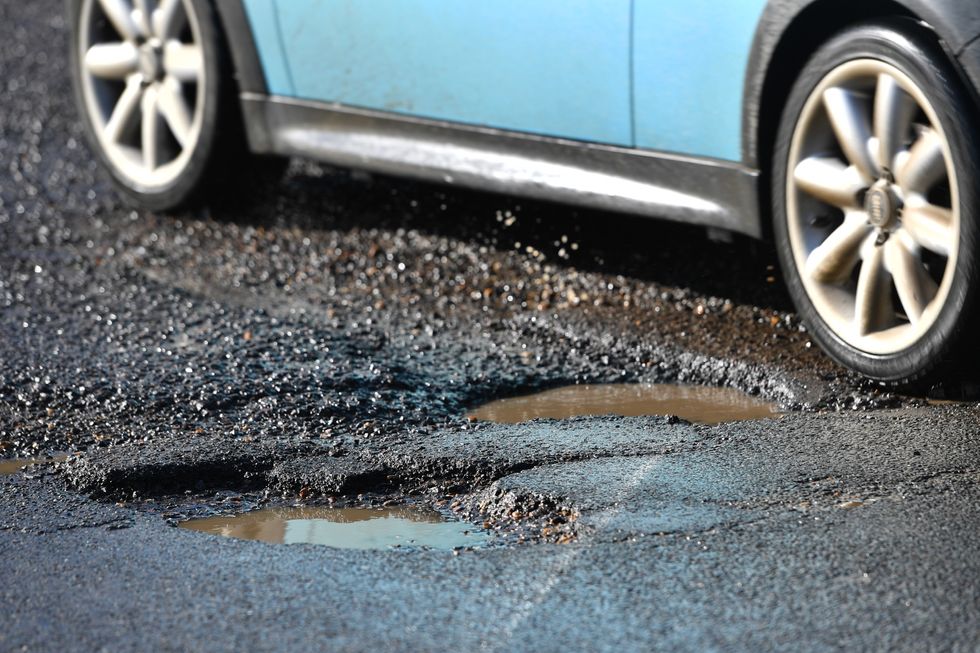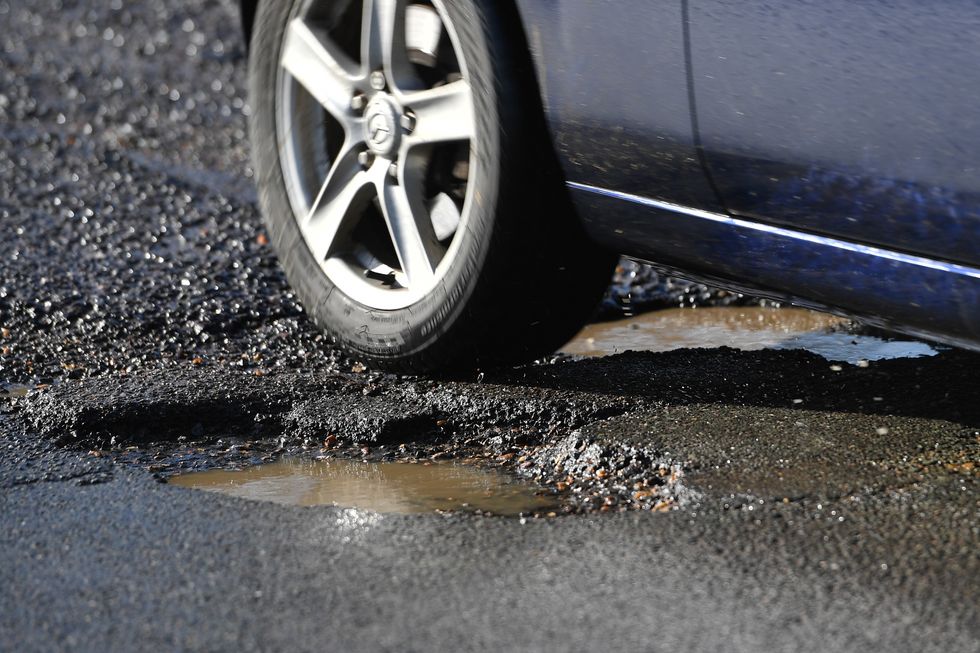Potholes need to be 30cm wide before local councils fix them as roads crumble - 'Enormously frustrating!'

'Many factors affect repair rates, such as the road profile, traffic levels and available budgets'
Don't Miss
Most Read
Staggering new data has found that only one-third of councils around the country fix potholes when they reach a specific depth, rather than repairing roads in any poor condition.
Just over a third of councils across Great Britain have a strict limit as to how deep a road defect needs to be before it gets fixed, while 37 per cent say they take a "risk-based approach".
The analysis from the RAC and Channel 4 Dispatches means that drivers who proactively report potholes will often be left frustrated with local authorities refusing to take action until they get bigger in order to merit repair.
Of the 71 councils that say they only act on potholes when they reach a certain limit, the most common depth stated was four centimetres, with 54 councils having this minimum limit.
Do you have a story you'd like to share? Get in touch by emailing motoring@gbnews.uk

Experts are urging drivers to continue reporting potholes to their local councils
|PA
Six councils - including Warwickshire, Torbay, Thurrock, Nottingham, Torfaen and South Lanarkshire - said potholes needed to be at least 5cm deep before they are considered for repair.
Buckinghamshire, Stockport, Devon and 10 other councils have the strictest guidelines, with a pothole needing to be at least 30cm wide - the length of an A4 sheet of paper - and 4cm deep to get fixed.
The findings prompted the RAC to call on the Government to instruct councils to take a "risk-based approach" to deciding which potholes and road defects need to be repaired.
The organisation suggested that this could be done by assessing how busy the road is, how commonly it's used by cyclists and whether it poses a hazard to motorists.
Rod Dennis, spokesperson for the RAC, said drivers have historically been urged to inform their local authority about potholes, but that the data shows it doesn't guarantee that the defect will be fixed.
He added: "This can be enormously frustrating for anyone who comes across one, reports it but then witnesses it get even bigger and more dangerous as it didn’t quite reach a council’s threshold for repair.
"What’s just as bad is when a council provides no information whatsoever on how they decide which road defects warrant their attention and which don’t.
"We’re also concerned about reports that some councils are refusing compensation claims from drivers who have damaged their cars from potholes, by stating they already have them scheduled for repair – even if that repair isn’t due for months.”
More than £8billion has been promised to councils by the Government over an 11-year period following the cancellation of the HS2 northern leg project to deal with potholes and resurfacing roads.
It is estimated that the £8.3billion funding boost is only enough to resurface 5,000 miles of road, which the RAC has estimated is just three per cent of all roads in England.
Councillor Darren Rodwell, transport spokesperson for the Local Government Association, said: “Councils are on the side of all road users and want to focus on properly resurfacing our roads, including tackling the £16.3billion backlog of road repairs.
“Many factors affect repair rates, such as the road profile, traffic levels and available budgets.
LATEST DEVELOPMENTS:
 Pothole damage has reached an eight-year high | PA
Pothole damage has reached an eight-year high | PA
"Councils would much prefer to focus on preventative repairs but only greater, year-on-year long-term funding certainty for maintaining all parts of our highways will help them achieve this.
“The Government should award council Highways Departments five-yearly funding allocations, on a par with National Highways, to give them more certainty to develop resurfacing programmes and other improvements to help prevent potholes in the first place.”











